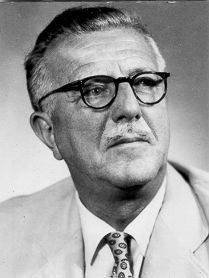Henry Bernard Kettlewell | |
|---|---|
 | |
| Born | Henry Bernard Davis Kettlewell 24 February 1907 Howden, Yorkshire, England |
| Died | 11 May 1979 (aged 72) Oxford, England |
| Resting place | Steeple Barton 51°55′19″N 1°21′04″W / 51.922°N 1.351°W |
| Alma mater | Gonville and Caius College, Cambridge |
| Known for | Peppered moth evolution |
| Awards | Darwin Medal (USSR) Mendel Medal (Czechoslovakia) |
| Scientific career | |
| Fields | Medicine, zoology |
| Institutions | St Bartholomew's Hospital St. Luke's Hospital Woking War Hospital Cape Town University Oxford University |
| Academic advisors | E. B. Ford |
Henry Bernard Davis Kettlewell (24 February 1907 – 11 May 1979)[1] was a British geneticist, lepidopterist and medical doctor, who performed research on the influence of industrial melanism on peppered moth (Biston betularia) coloration, showing why moths are darker in polluted areas. This experiment is cited as a classic demonstration of natural selection in action.[2] After live video record of the experiment with Niko Tinbergen, Sewall Wright called the study as "the clearest case in which a conspicuous evolutionary process has actually been observed."[3]
- ^ Raeburn, Paul (25 August 2002). "The Moth That Failed". The New York Times. Retrieved 28 November 2014.
- ^ Rudge, David W. (2005). "The Beauty of Kettlewell's Classic Experimental Demonstration of Natural Selection". BioScience. 55 (4): 369–375. doi:10.1641/0006-3568(2005)055[0369:TBOKCE]2.0.CO;2.
- ^ Rice, Stanley A. (2007). Encyclopedia of Evolution. New York: Facts On File. p. 308. ISBN 978-1-4381-1005-9.